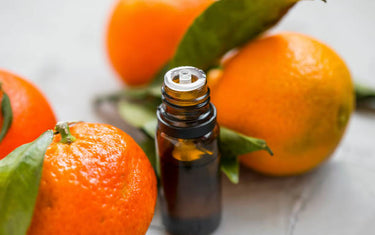7 min read / 6 September 2024 / yasmin sharp
10 Benefits and Uses of Eucalyptus Oil
Eucalyptus is incredibly versatile, good for pain, congestion, and skin irritations.
Share this post

The native people of Australia traditionally used eucalyptus, with the plant also originating in Tasmania and nearby islands.
Within their culture, eucalyptus leaves were infused with other plants to provide natural treatments for a variety of ailments such as coughs, sinus congestion and pains and aches.
Today, eucalyptus oil is produced by a wide variety of countries, including Portugal, Spain, Chile, Brazil, South Africa, Australia and Eswatini.
Research continues to explore potential properties of eucalyptus oil.
We wanted to explain more about its uses and versatility, revealing more about potential applications of eucalyptus oil.
What is eucalyptus oil?Eucalyptus oil is extracted from the eucalyptus plant (a genus that encompasses more than 700 species) via steam distillation. However, of these species, only 20 produce enough oil that can be sold on the commercial market. Eucalyptus globulus is the main species of the plant that is used to create this oil, although depending on where it is grown in the world, the type of oil produced can vary. The oil carries a distinct menthol scent. |
How does eucalyptus oil work?
This oil is composed of more than 100 different compounds. Limonene, aromadendrene, 1,8-cineole, a-pinene, a-phellandrene, terpinen-4-ol, globulol, epiglobulol and b-pinene are its main chemical components.
Eucalyptus oil blends particularly well with lemongrass, lavender, benzoin, thyme, pine and lemon.
The oil can be used in a variety of ways, with vapour therapy helping to ease respiratory issues, boost concentration or offer protection against insects.
Some people use eucalyptus oil in massage or bath preparations, and it is sometimes added to topical preparations.

10 benefits of eucalyptus oil
Eucalyptus oil may have various potential uses:
1. Supporting respiratory health
Some studies suggest eucalyptus may have properties that support respiratory function.
Research continues to explore the potential effects of eucalyptus components on respiratory health.
These scientific studies help to explain why eucalyptus is so widely used by people with cold and flu symptoms since the oil’s properties can help to ease congestion, coughing and breathing difficulties.
2. Supporting general wellness
Some people incorporate eucalyptus oil into cleaning routines.
Its antibacterial benefits were shown to be true in a 2012 study with researchers finding that it can effectively fight against infections caused by E. coli and staph.
The oil also contains anti-fungal properties that when diluted and applied to candida and toenail fungus can produce a positive effect which has been reported by numerous people who have tried this remedy at home.
3. Potential soothing properties
Eucalyptus essential oil can also prove very useful in the management of muscle pain and in reducing swelling around injuries thanks to its anti-inflammatory properties.
In 2013, researchers found that eucalyptus oil was able to reduce inflammation and pain in a group of patients who had just undergone total knee replacement surgery.
The oil’s expectorant properties can help to alleviate sinus pressure, which offers a natural remedy for combating earaches and headaches.
Some users of the oil have found that applying it to facial muscles can ease tension, which can also help if you are experiencing a headache brought on by exhaustion or stress.
4. Potential pest management
Some studies have explored potential pest management applications of eucalyptus.
This was tested by spraying certain sections of a lab cage containing rats, after which they saw that the food was not consumed.
This is something that could be tried safely at home by spraying eucalyptus oil in certain areas that are likely to experience rat activity (cellars, roof spaces, cupboards etc.).
You may even find that some commercial bug repellents include eucalyptus in their formulas.
Mixing the pure form of the oil with other oils such as citronella or peppermint, could also be used to make your own homemade bug repellent spray to use at home.
5. Research on blood sugar levels
Research into how eucalyptus oil works is ongoing, which means there is still quite a lot that remains unknown and a lot of exciting discoveries still to be uncovered.
Some experts are exploring potential roles for eucalyptus in blood sugar management; however more research is needed before any recommendations can be made regarding its use alongside medication for diabetes treatment.

6. Freshening breath
The antibacterial properties of eucalyptus oil can make it very effective at fighting the germs that are responsible for bad mouth odours.
You may even find that some toothpastes and mouthwashes contain the oil as an active ingredient.
Although research is still ongoing, it is also believed that eucalyptus may be able to prevent the build up of plaque on teeth and gums by fighting the bacteria responsible for tooth decay.
You can make your own homemade eucalyptus mouthwash by adding 1-2 drops to water, gargling and then spitting it out.
But you must take care to use a food grade oil, and not to swallow it when gargling as it can prove toxic.
7. Boosting energy levels
Many people find eucalyptus oil to be very helpful at soothing a crowded mind, with the scent alleviating feelings of stress and anxiety.
An older study conducted in 1994 involving 32 healthy participants, found that a combination of eucalyptus oil, ethanol and peppermint oil was able to improve cognitive performance when applied to large areas of the temples and forehead.
Researchers also found that using the essential oil blend helped to relax the muscles and allowed people to unwind.
8. Improving acne symptoms
People dealing with acne find that the skin becomes inflamed and painful to touch.
However, there have been some promising results presented by researchers relating to the anti-inflammatory properties of eucalyptus.
According to a 2012 study, the oil may be able to improve ceramide production.
Ceramides are made up of a substance called sphingosine and they play an important role in retaining moisture in the skin, helping to prevent germs from entering.
This is also partly the reason why a range of anti-dandruff shampoos include eucalyptus extract in their formulas.
9. Stimulating the immune system
Findings published in BMC Immunology concluded that eucalyptus oil may be able to stimulate an immune system response.
Researchers found that the immune system’s phagocytic response to pathogens in a rat model could be enhanced by the oil.
When the immune system consumes and destroys foreign particles in the body, this is known as a phagocytic response.
These findings could prove useful in other areas of medicine when it comes to tackling flu strains, fevers, arthritis, bladder diseases and many more conditions.
10. Killing off head lice
Whilst there are already a few effective treatments for head lice, researchers have also learned that eucalyptus could offer a natural alternative.
A study published in 2017 found that when eucalyptus oil was used in head lice treatment, compared to traditional treatments it proved to be more than twice as effective at treating head lice infestation.
In addition, when a eucalyptus solution was exposed to in vitro eggs and lice, it resulted in 100% mortality.

How to use eucalyptus oil
Common eucalyptus oil uses include:
As an aromatherapy treatment
Some people use eucalyptus oil in aromatherapy. Add 5-7 drops into water using either a burner or diffuser to disperse the aroma.
Some users add a few drops to hot water and inhale the steam.
As a skincare solution
Some people incorporate eucalyptus oil into their skincare routine.
Mix a couple of drops of the oil with a carrier oil (such as jojoba oil or sweet almond oil) or with your favourite skincare lotion and apply as normal.
Always perform a patch test before using new products on your skin.
History of eucalyptus oil
The native people of Australia considered eucalyptus to be an ancient remedy, naming it “kina” (which means “cure-all”) due to the wide range of benefits it offered.
During the First World War, the oils' benefits also came to the fore, with the oil being used to manage the spread of influenza and meningitis amongst soldiers in the trenches.
Whilst researchers are still exploring the benefits provided by the oil’s expectorant properties, that has not prevented it from becoming a household favourite.
Eucalyptus oil has come a long way since being used in leaf infusions as a traditional medicine by native Australians and is now a firm favourite around the world in modern aromatherapy culture.

Eucalyptus oil FAQs
Does eucalyptus essential oil help your sleep?
Some people use it for relaxation before bedtime. Its aroma may help create a soothing environment.
Can you ingest eucalyptus oil?
This oil is not meant for ingestion. It can be toxic if swallowed, even when diluted. Consult a healthcare professional for safe usage.
Can I use eucalyptus as a massage oil?
Some people use diluted eucalyptus oil in massage. Always dilute essential oils with a carrier oil before applying to skin.
|
Product Name |
100% Pure Eucalyptus (Chinese) Essential Oil |
| Botanical Name | Eucalyptus Globulus |
| Scent Type | Fresh |
| Benefits & Uses | Decongestant, Antibacterial, Anti-Inflammatory |
| Suitable for Diffusers? | Yes, this eucalyptus (chinese) essential oil is perfect for diffusers. |
| Suitable for Candles and Soaps? | Yes, this eucalyptus (chinese) essential oil is perfect for candle and soap making. |
| Extraction Method | Steam Distillation |
| Bottle Type | Tamper proof and UV resistant |










